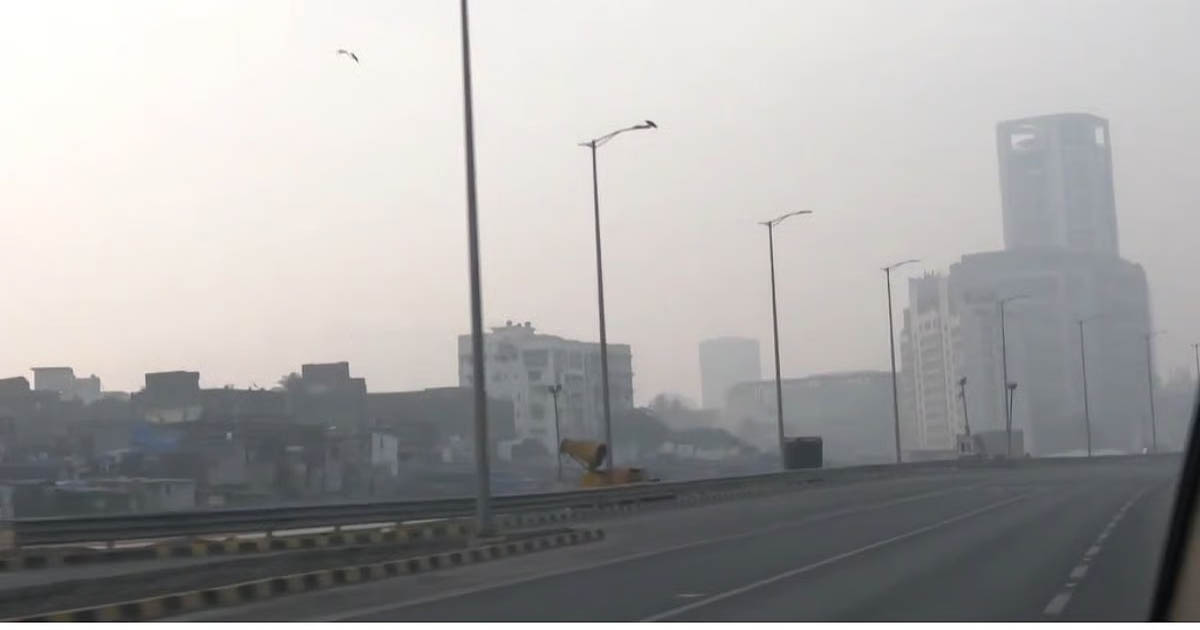National News
BJP can talk to Taliban but not Farmers, says Congress

The Congress has mounted further attack on the BJP-led government in Haryana for suppressing the voice of the farmers by blocking internet in Karnal.
Congress chief spokesperson, Randeep Surjewala said in a statement, “The Khattar government has lost the confidence and the mandate of the people and it should leave. When your party can talk to the Taliban, why not farmers.”
He added that it’s dictatorship to block the internet.
Multi-layer security has been deployed at the spot where Mahapanchayat is to be held. Around 30 battalions, including the central forces have been deployed to ensure security and to avoid any untoward incident.
Though there are multi-layer barricading to stop people from moving towards the Karnal mandi, the agitating farmers said they will reach the spot at any cost. “If needed, we will break the barricades. No security can stop farmers from attending the mahapanchayat,” said Jagdeep Singh Chaduni, a Karnal-based Bhartiya Kisan Union (BKU).
Chaduni told IANS that a large number of farmers across the State will gather for the meet. “People have started coming and they will reach the mandi soon. All farm leaders will reach the spot by noon and then mahapanchayat will start,” he added.
Farmers gathered here at Karnal mandi said they want action against the IAS officer who had ordered police action on August 28. They said the official should be suspended and the families of all the farmers who have sacrificed their lives during the protest should be compensated.
The farmers mahapanchayat is at the grain market of Karnal and then they will take out a protest march on NH 44 before proceeding towards the mini-secretariat.
Crime
Four held for IDFC First Bank fraud; amount transferred to private firm

Chandigarh, Feb 25: Haryana Director General of Anti-Corruption Bureau, Arshinder Singh Chawla, on Wednesday said four accused were arrested in the IDFC First Bank fraud case involving government departments as the money was transferred to the Swastik Desh project, a private firm owned by some of the accused.
They have been identified as Ribhav Rishi, Abhishek Singla, Abhay Kumar and Swati Singla.
“A letter was received on February 23 regarding embezzlement of Panchayat Department funds, and a case was registered following government orders,” he told the media in Panchkula, in Haryana.
He said the Special Investigating Team (SIT), headed by Ganga Ram Poonia, arrested the accused within 24 hours.
“IDFC Bank has returned the government funds, but the matter is being investigated,” Chawla said, adding Vibhav Rishi and Abhay had masterminded this entire case.
He said the money of the people of Haryana is safe.
“A sum of Rs 300 crore was invested in a private company and money also went to AU Small Finance.”
The money was sent to the Swastik Desh project, owned by Swati Singla, and her brother Abhishek Singla, and who have been arrested as part of the ongoing investigation.
Regarding the involvement of senior government officials in the fraud, Chawla said, “It is not possible to comment at this early stage of the investigation.”
The Vigilance and Anti-Corruption Bureau found that several government departments are involved in this matter, including some accounts of the Chandigarh administration.
As per information, the main accused Ribhav Rishi, resident of Panchkula, had left his job in the bank six months ago, while Abhay Kumar had quit his job in August last year.
In a strong assertion of fiscal accountability and administrative transparency, Chief Minister Nayab Singh Saini on Tuesday informed the Assembly that the government has recovered the Rs 556 crore linked to the fraud case, including nearly Rs 22 crore in interest, within 24 hours.
Chief Minister Saini said the full amount pertaining to various government departments, boards and corporations has been credited back by IDFC First Bank into the respective departmental accounts.
He said the swift recovery was made possible through coordinated efforts between the Haryana government and senior bank officials.
Calling it a matter of public trust, Chief Minister Saini underscored that the funds represent the hard-earned money of 2.8 crore citizens of Haryana and would be utilised strictly for their welfare.
“Every single rupee belonging to the people will be safeguarded and spent only for their benefit,” he said.
The Chief Minister said a high-level committee, headed by the Finance Secretary, has been constituted to examine the matter in detail and fix accountability of the employees and officers concerned.
The committee will determine responsibility and recommend further action, if required.
Chief Minister Saini said the bank has indicated that the irregularities were primarily linked to its Chandigarh branch and involved alleged collusion at the middle and lower levels. He made it clear that no one involved in this case, whether a government official or a bank employee, will be spared.
Crime
Odisha: Rs 4 crore seized from senior mines official’s residence

Bhubaneswar, Feb 25: In the highest-ever cash seizure by Odisha’s Vigilance Department, the anti corruption sleuths on Wednesday unearthed over Rs 4 crore in cash from the Bhubaneswar flat of Deputy Director of Mines, Cuttack Circle.
The accused, identified as Debabrata Mohanty, was apprehended on Tuesday night for allegedly accepting a bribe of Rs 30,000 from a licensed coal vendor for allowing smooth running of his coal depot and to grant permission to transport coal.
Following his arrest, Vigilance officials launched simultaneous searches at multiple locations linked to him, including his residential flat at Shree Vihar, Patia in Bhubaneswar, his parental house at Mathasahi in Bhadrak, and his office chamber in Cuttack to ascertain whether the accused Deputy Director has possessed any disproportionate assets (DA).
During the ongoing searches, cash exceeding Rs 4 crore was recovered from his flat in Bhubaneswar. The money was found concealed in trolley bags and almirahs.
Officials said the counting process is underway to determine the exact amount.
The recovery marks the largest cash seizure ever made by Odisha Vigilance.
Additionally, Rs 1.20 lakh in cash was recovered and seized from Mohanty’s office drawer and personal possession.
Apart from the cash, Vigilance officials have so far unearthed the following assets: A palatial double-storeyed building measuring approximately 2,400 sq ft at Pahala in Bhubaneswar. Gold ornaments weighing around 130 grams have also been recovered from Mohanty’s posession.
A case has been registered under Section 7 of the Prevention of Corruption (Amendment) Act, 2018, against Mohanty at the Bhubaneswar Vigilance Police Station in this regard on Monday.
Notably, Chief Minister Mohan Charan Majhi, on Monday, told the State Assembly that the Vigilance Department has registered a total 416 cases against government officers and employees in the state for taking bribes, committing financial irregularities in government fund and possession of disproportionate assets between January 1, 2024 and December 31, 2025.
National News
Mumbai Weather Update February 24, 2026: Smog Engulfs The City Skyline As AQI Remains In ‘Unhealthy’ Category

Mumbai: The residents of Mumbai woke up to a warm sunny morning on Tuesday, 24th February. But the pleasant weather did not last long as smog covered the sky in most parts of the city, posing an issue to early morning commuters.
According to the India Meteorological Department (IMD), Mumbai is expected to experience mainly clear skies today, with temperatures likely to range between 19°C and 34°C, the same as the previous day, indicating the arrival of the summer months.
The city’s overall Air Quality Index (AQI) stood at 235 on Tuesday, placing it into the ‘unhealthy’ category, as per data from AQI.in. In the last 24 hours, there have been major fluctuations in the AQI, with the lowest recorded AQI of 164 at 1.30 pm the previous day. The AQI has only increased ever since. The sudden spike in pollution levels is concerning, as such fluctuations can have adverse effects on vulnerable groups, including children, senior citizens, and those with respiratory ailments.
Several pockets in Mumbai continue to report severe air quality. Kannamwar Nagar Li recorded the highest AQI at 357, placing it in the ‘Severe’ category. Other areas with critically high readings included BS Ambedkar Nagar, Mithchowki, Sarvodaya Nagar, Savitribai Phule Nagar, which recorded AQI levels of 346, 345, 325 and 324, respectively, falling into the ‘severe’ category.
In contrast, a few localities reported relatively better air quality. Gamdevi Station 1 recorded an AQI of 67, falling in the ‘Moderate’ category. Hira Nagar, New Navy Nagar, Saraswati Colony and Walkeshwar reported AQI levels of 97 (Moderate), 98 (Moderate), 100 (Moderate) and 103 (Poor), respectively.
As per standard air quality classifications, AQI values between 0 and 50 are considered ‘good’, 51 to 100 ‘moderate’, 101 to 200 ‘poor’, 201 to 300 ‘unhealthy’ and levels above 300 are classified as ‘severe’ or ‘hazardous’.
-

 Crime4 years ago
Crime4 years agoClass 10 student jumps to death in Jaipur
-

 Maharashtra1 year ago
Maharashtra1 year agoMumbai Local Train Update: Central Railway’s New Timetable Comes Into Effect; Check Full List Of Revised Timings & Stations
-

 Maharashtra1 year ago
Maharashtra1 year agoMumbai To Go Toll-Free Tonight! Maharashtra Govt Announces Complete Toll Waiver For Light Motor Vehicles At All 5 Entry Points Of City
-

 Maharashtra1 year ago
Maharashtra1 year agoFalse photo of Imtiaz Jaleel’s rally, exposing the fooling conspiracy
-

 National News1 year ago
National News1 year agoMinistry of Railways rolls out Special Drive 4.0 with focus on digitisation, cleanliness, inclusiveness and grievance redressal
-

 Maharashtra1 year ago
Maharashtra1 year agoMaharashtra Elections 2024: Mumbai Metro & BEST Services Extended Till Midnight On Voting Day
-

 National News1 year ago
National News1 year agoJ&K: 4 Jawans Killed, 28 Injured After Bus Carrying BSF Personnel For Poll Duty Falls Into Gorge In Budgam; Terrifying Visuals Surface
-

 Crime1 year ago
Crime1 year agoBaba Siddique Murder: Mumbai Police Unable To Get Lawrence Bishnoi Custody Due To Home Ministry Order, Says Report






















